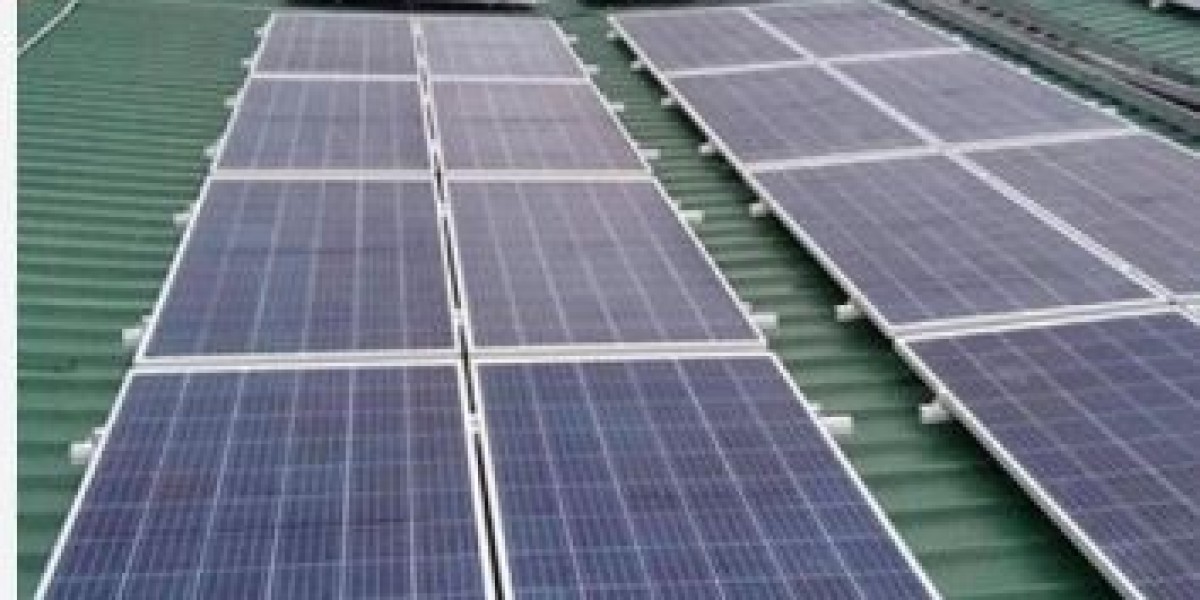Introduction:
In the realm of industrial operations, where energy consumption is significant, the adoption of solar panels represents a pivotal shift towards sustainable and cost-effective energy solutions. This comprehensive guide explores the benefits, challenges, and strategic considerations of integrating solar panels for industrial use, highlighting their transformative impact on operational efficiency, environmental sustainability, and economic viability.
Harnessing Solar Power in Industrial Settings
Solar panels have emerged as a game-changer in industrial energy management, offering reliable electricity generation from sunlight. Industrial facilities, characterized by large rooftops and expansive land areas, are ideally suited for deploying solar photovoltaic (PV) systems to offset conventional grid electricity and reduce operational costs.
Key Benefits of Solar Panels for Industrial Applications
Cost Savings: By generating onsite solar power, industrial facilities can significantly lower electricity bills and mitigate the impact of fluctuating energy prices. Long-term savings accrue from reduced operational expenses and favorable return on investment (ROI) through incentives such as tax credits and accelerated depreciation.
Environmental Impact: Solar energy is a clean and renewable resource that minimizes greenhouse gas emissions and environmental footprint associated with conventional fossil fuel-based electricity generation. Industrial adoption of solar panels supports corporate sustainability goals, enhances environmental stewardship, and aligns with regulatory compliance requirements.
Energy Security and Resilience: Solar panels for industrial use enhance energy security by diversifying energy sources and reducing dependency on grid-supplied electricity. During grid outages or disruptions, onsite solar power ensures continuity of critical operations, safeguarding productivity and minimizing downtime.
Overcoming Challenges in Solar Integration for Industry
Initial Investment: The upfront cost of installing solar panels may pose a barrier to industrial adoption. However, financial incentives, favorable financing options, and economies of scale in larger installations mitigate upfront investment challenges, yielding long-term financial benefits.
Technical Feasibility: Assessing site suitability, optimizing solar panel placement, and addressing structural considerations are critical to maximizing energy yield and system efficiency. Collaboration with experienced solar installers and engineers ensures customized solutions tailored to industrial facility requirements.
Technological Advancements and Innovation
Advanced Solar Technologies: High-efficiency solar panels, such as monocrystalline and bifacial modules, optimize energy capture and yield in varying light conditions. Innovations in panel design, inverters, and monitoring systems enhance system performance, reliability, and operational transparency.
Energy Storage Solutions: Integrated battery storage systems complement solar PV installations by storing excess energy for use during peak demand periods or grid instability. Energy storage enhances grid stability, supports demand response initiatives, and maximizes self-consumption of onsite solar generation.
Strategic Considerations for Industrial Solar Projects
Regulatory and Permitting Requirements: Navigating local regulations, zoning ordinances, and utility interconnection processes is essential for seamless project execution. Engaging with regulatory authorities and stakeholders early ensures compliance and facilitates project approval timelines.
Lifecycle Management and Maintenance: Implementing proactive maintenance practices and monitoring systems optimize solar panel performance, prolong equipment lifespan, and minimize downtime. Routine inspections, cleaning, and predictive maintenance strategies maximize ROI and operational reliability.
Case Studies and Success Stories
Highlighting industry-specific case studies and success stories demonstrates the feasibility and benefits of industrial solar projects. Examples include manufacturing facilities, logistics centers, and warehouses that have successfully integrated solar panels to achieve energy efficiency goals, reduce operating costs, and enhance corporate sustainability profiles.
Conclusion
In conclusion, solar panels for industrial use represent a strategic investment in enhancing operational efficiency, reducing costs, and advancing sustainability objectives. By leveraging solar energy, industrial stakeholders can achieve energy independence, mitigate environmental impact, and strengthen resilience against energy disruptions. Embracing technological advancements, regulatory support, and collaborative partnerships accelerates the adoption of solar panels, paving the way towards a cleaner, more sustainable industrial future.



